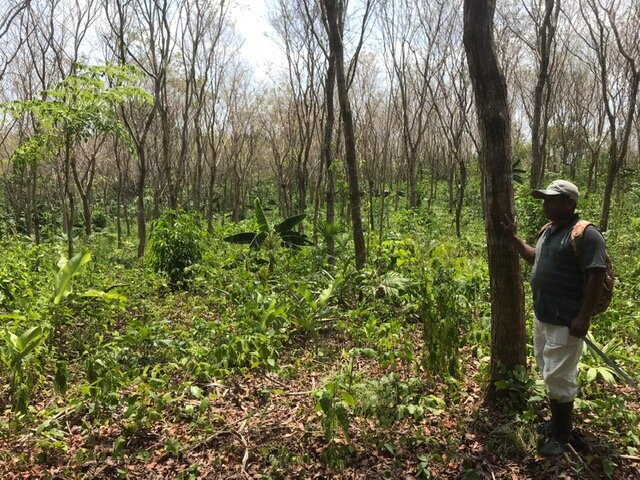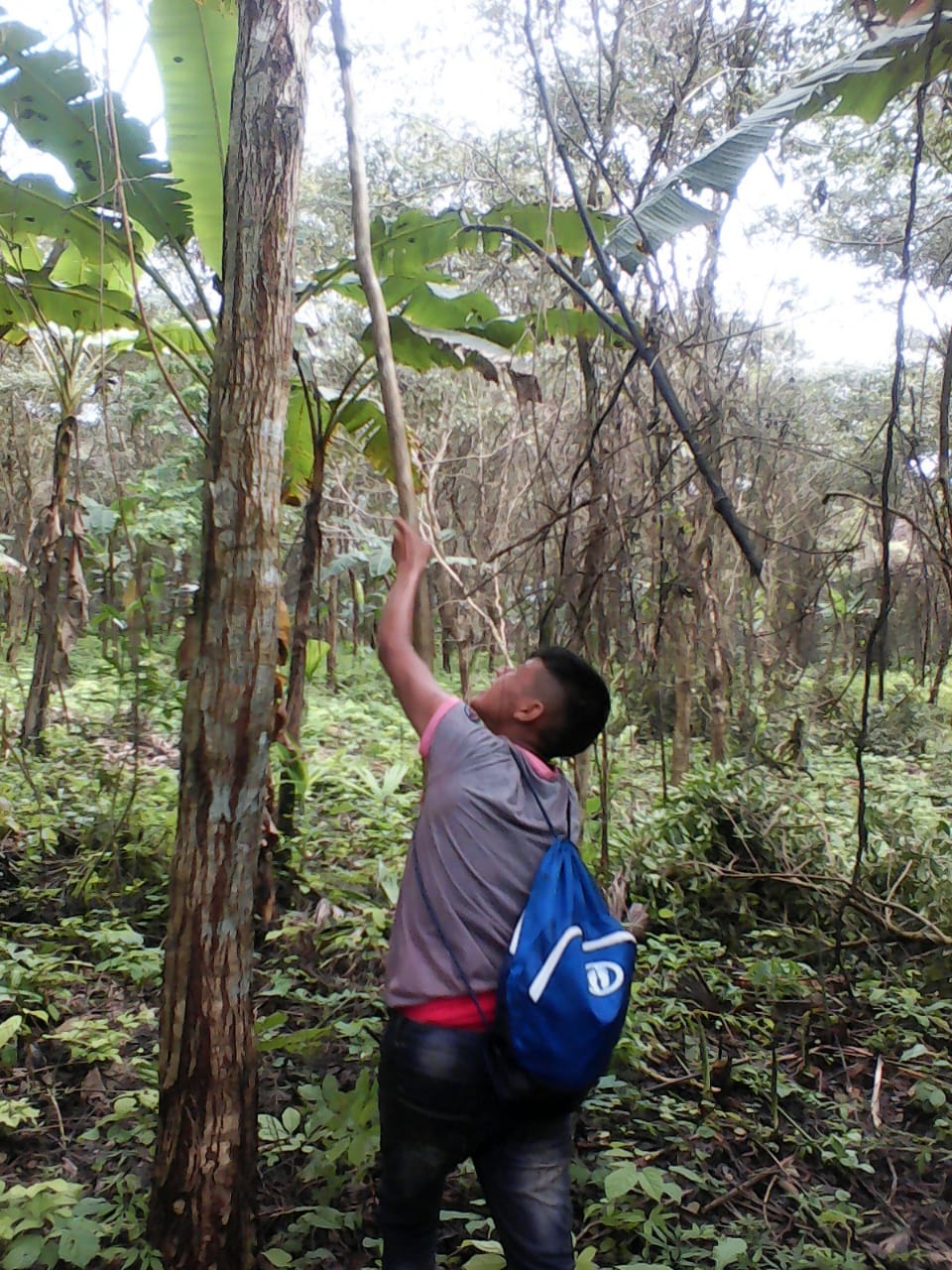Update on the Small Grants Program Project
/ Liriano clears around one of the baby rosewood saplings that the community planted through the SGP programOne of the most exciting things I saw during my recent trip to Panama was the results of the United Nations Development Program's Small Grants Program (SGP) project that we helped Arimae receive and execute. With the financial support from the SGP, the community built a small nursery to produce rosewood, and then planted five hectares of those rosewood saplings with their own initiative. Another interesting part of the project is that the seeds for the rosewood came from their own reserve, so the saplings should be well suited to the local climate and soil conditions.
Liriano clears around one of the baby rosewood saplings that the community planted through the SGP programOne of the most exciting things I saw during my recent trip to Panama was the results of the United Nations Development Program's Small Grants Program (SGP) project that we helped Arimae receive and execute. With the financial support from the SGP, the community built a small nursery to produce rosewood, and then planted five hectares of those rosewood saplings with their own initiative. Another interesting part of the project is that the seeds for the rosewood came from their own reserve, so the saplings should be well suited to the local climate and soil conditions.
The community is also field testing methods for growing cacao between rows of timber trees. Arimae planted planted cacao among the rosewood saplings, and underneath some older mahogany in their reserve. The cacao and rosewood should compete well with each other as they have similar growth rates. The cacao planted underneath the older mahogany trees will receive much more shade, so it will be interesting to monitor the two sets of cacao plantings under such different conditions. It is great to see this experiment happening and PE will study the results closely to determine if it is viable to plant cacao in our investor-owned plantations. This could potentially generate earlier returns for investors and more economic benefits for the local communities.
Finally, our forester Jose Deago worked with field surpervisor Liriano and the community on all the technical aspects of the sapling production and planting. This is an example of what you might consider a unique "public - private" partnership. The financier of the project, the SGP, is a public institution. The community operates under collective land rights, so a hybrid structure of private and "public" ownership of one of the main inputs. While Planting Empowerment wasn't compensated directly for our work, we expect to benefit indirectly in the future by purchasing saplings from the community and from the knowledge of integrating cacao into our investor plantations.



